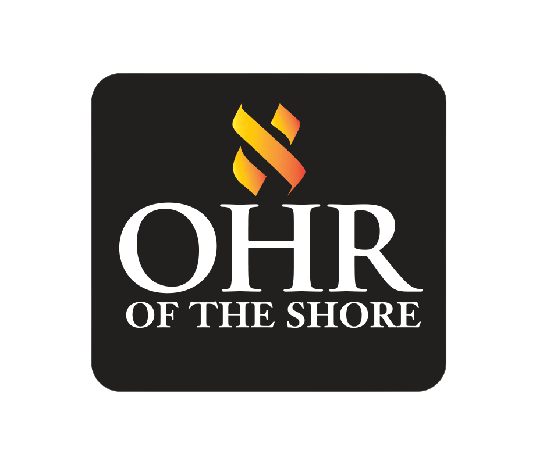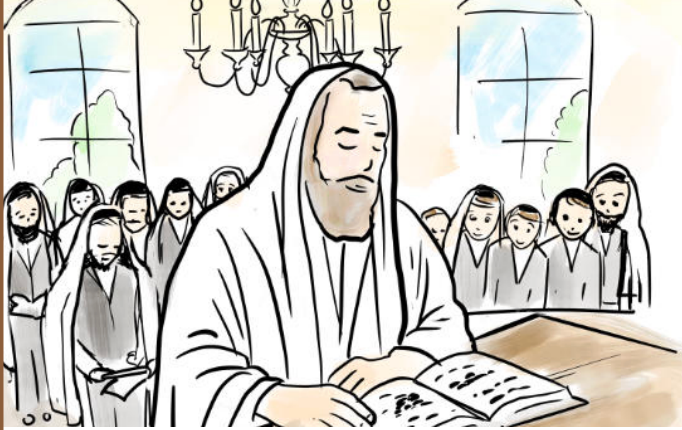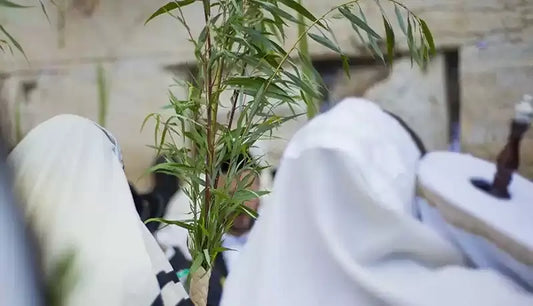Rabbi Hayim Asher Arking
Rabbi Ezra Ghodsi
Are we required to eat bread on Erev Yom Kippur?
There is a mitsvah to eat on Erev Yom Kippur. Hashem, our loving father, gave us the mitsvah to eat, so that we will have the strength and ability to withstand the fast. In addition, having a meal enables us to demonstrate our appreciation for the opportunity to have our sins forgiven. Also, just as we have a festive meal for every Yom Tov, we do the same for Yom Kippur, only that we have to do it before, as we obviously cannot eat on Yom Kippur itself. Therefore, one should have at least one bread meal on Erev Yom Kippur.
Why do we pray Minha early?
The Hachamim instituted for us to say vidui at the end of the Amidah by Minha, as a precaution, just in case something happens during the meal which would prevent one from saying the vidui later. Vidui on Yom Kippur is extremely potent, and we want to ensure that every single person secures this opportunity.
Our community’s custom is to wear Talet and Tefillin by Minha.
How many times do we say vidui?
The vidui is said ten times throughout Yom Kippur: in each Amidah and hazarah, and during the selihot of Arbit.
The vidui needs to be said standing, ideally while slightly bent over. It is proper to also stand during the ‘al het’, but one who is elderly or very weak may sit. One should bang on the heart by the words of ahshamnu, bagadnu, etc.
May I still eat after saying Birkat Hamazon before the fast starts?
According to some, it is preferable to have in mind not to accept the fast when reciting Birkat Hamazon. If one did not, he may still eat or drink, even if he planned on accepting the fast. However, if one verbalizes his acceptance of the fast, then he may no longer eat or drink, and all the other restrictions of Yom Kippur apply at that time.
Do we say a beracha on the tallet?
When donning the tallet before sunset, a beracha is recited. Afterward, the tallet should be put on without a beracha. Also, when returning to shul on Yom Kippur for Minha after an extended break, a beracha is recited again before donning the tallit.
There are five prohibitions on Yom Kippur: 1) No eating or drinking. 2) No washing. 3) No applying creams or oils to one’s skin. 4) No leather shoes. 5) No marital relations.
In truth, Yom Kippur is a happy and uplifting day. Unlike on Tisha B’Av, when we abstain from these same five things as an expression of sadness and mourning, on this holy day the objective is to allow us to attain an angelic state. By removing ourselves from daily physical pleasures and indulgences, the holiness of our soul is allowed to shine its brightest.
When does the fast start?
The fast should be accepted at least a few minutes before sunset (approximately 6:37 P.M. in the NY/NJ area). At that point, the aforementioned five prohibitions apply.
For women who have the custom of reciting shehehi’anu when lighting, the fast is accepted automatically at the time of the beracha. (As such, they need to do the actual lighting before reciting the beracha of shehehi’anu).
Do children under bar/bat mitsvah fast?
Children should begin fasting at night and at least part of the day, once they are nine (or ten, if it is too difficult). In the morning, they should delay eating for an hour or longer, depending on what they can withstand.
Shulchan Aruch writes that a healthy eleven-year-old child, (both boys and girls) should fast for the whole day. However, many say that since nowadays it is difficult for many kids to withstand this, an eleven-year-old boy can wait until the year before his bar mitsvah to start fasting the entire day. Hacham Ovadia extends this leniency further, and allows fasting only until hatzot (midday), even during the year before. According to all, once they have reached the age of bar/bat mitsvah, they are required to fast like adults.
How do I wash my hands?
In the morning, one should wash his fingers up to the knuckles three times. One who has the custom during the year to wash their hands three times after entering a restroom may also do so on Yom Kippur, but only up to the knuckles.
Kohanim should wash up to the wrist, but they only wash each hand one time. When a Levi washes his own hands prior to washing those of the kohanim, he may only wash up to the knuckles.
My hands got dirty; can I wash them?
Any washing for cleanliness, (such as for unclean hands, or even to clean around the eye in the morning), is permitted. However, only the dirty area may be washed, and not the rest of the hand. If one touches his shoe, only the part of the hand that touched the shoe should be washed. However, if someone touched a covered part of their body, and therefore must wash before reciting a beracha or praying, then that hand should be washed up to the knuckles.
Other forms of washing which are not for enjoyment, such as washing fruit or vegetables for a child to eat, are also permitted.
May I use deodorant?
Smearing creams and oils is prohibited even if not done for pleasure. According to some opinions, using a spray deodorant is considered “washing,” which is permitted for cleanliness or to remove a bad odor. (A stick deodorant cannot be used even on Shabbat as it falls under the melacha of “memahek – smoothing”).
What if only part of the shoe is leather?
Shoes with leather, even if it is only in the sole or top, may not be worn. However, if there is only a small strip of leather, intended for decorative purposes only, it may be worn. Similarly, one may wear a pair of flip-flops that has only a thin strap of leather to hold the foot in place, but does not protect the foot.
What if I don’t have any non-leather shoes?
If one is worried that he will get hurt or dirty, then he may wear leather footwear outside, if he has no other option. For example, if it is pouring rain or muddy, one may wear appropriate shoes or boots outdoors to remain dry and clean. However, they should be removed immediately when entering the house or shul.
May children wear leather shoes?
Children should not wear leather shoes, if they have any other option.
May I take medicine?
Generally swallowing a medication tablet without water is not be considered eating and would be permitted. However, similar to every Shabbat, it is prohibited to take medicine unless one is ill or bedridden. This would apply to Yom Kippur also and one would not be able to swallow pills unless he is ill.
May one smell besamim?
It is permitted to smell besamim on Yom Kippur. In truth, it is advisable to recite berachot on besamim at different points throughout the day, so as to help one reach the required 100 daily berachot. One can also listen to the berachot on keriat HaTorah and have in mind to fulfill his obligation with those berachot.
When can I eat after the fast?
One is not allowed to eat or drink after the fast is over until after havdalah. However, it is permitted to drink water, if necessary.
Do we use a candle by havdalah?
After Yom Kippur, the beracha is only recited on a candle that meets two requirements: 1) The flame was in existence before Yom Kippur. A new candle can be lit from such a flame. 2) It was lit to benefit from the light, as opposed to a ‘yahrzeit candle’ that was lit in memory of someone. If one forgot to light such a candle before Yom Kippur, and he only has a ‘yahrzeit candle’, he can light a candle from the ‘yahrzeit candle’ and then recite the beracha on both of them together.
If one does not have such a candle, an effort should be made to get one from a friend or neighbor. If there is no such option, then the beracha is not recited. (In a year when Yom Kippur is on Motsei Shabbat, and one doesn’t have such a candle then the beracha can still be recited on a regular candle).
Do we recite the beracha on the besamim?
The beracha is not recited on besamim. (If Yom Kippur falls on Shabbat, this law is subject to debate. Therefore, one should not say the beracha during havdalah, and should instead wait until after drinking the wine, and recite the beracha on the besamim then).




